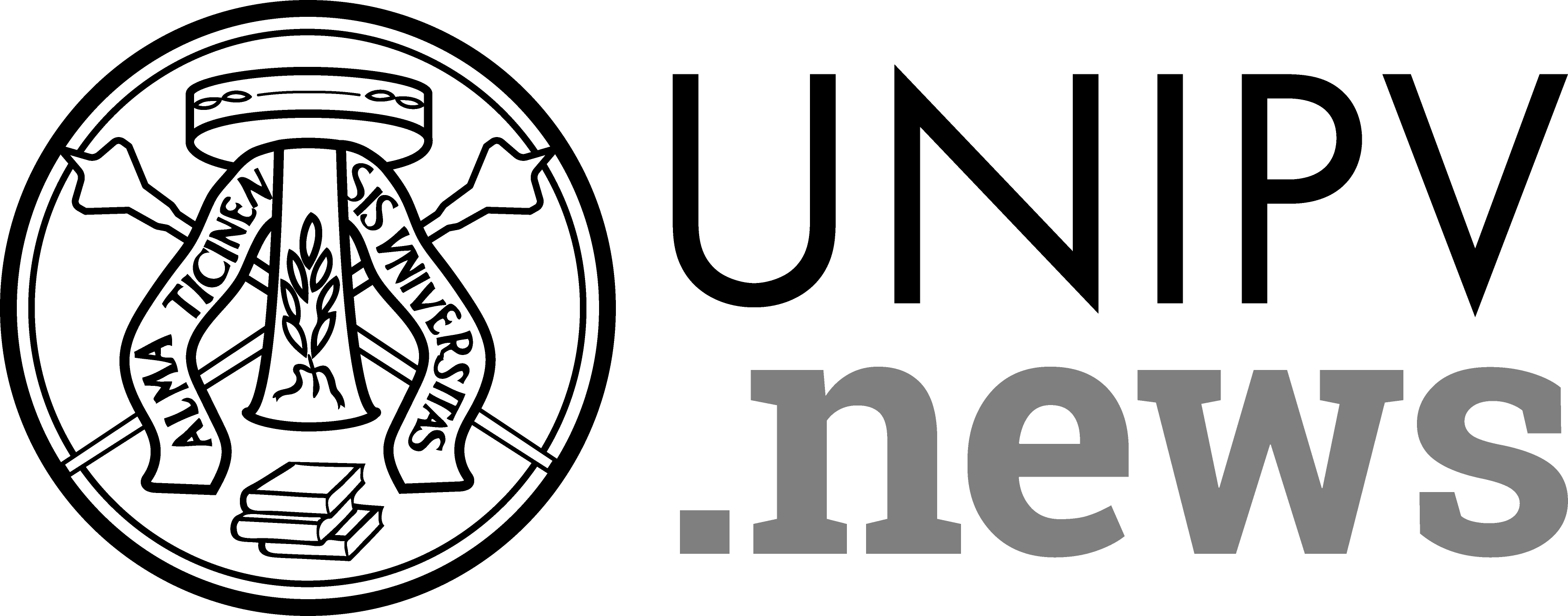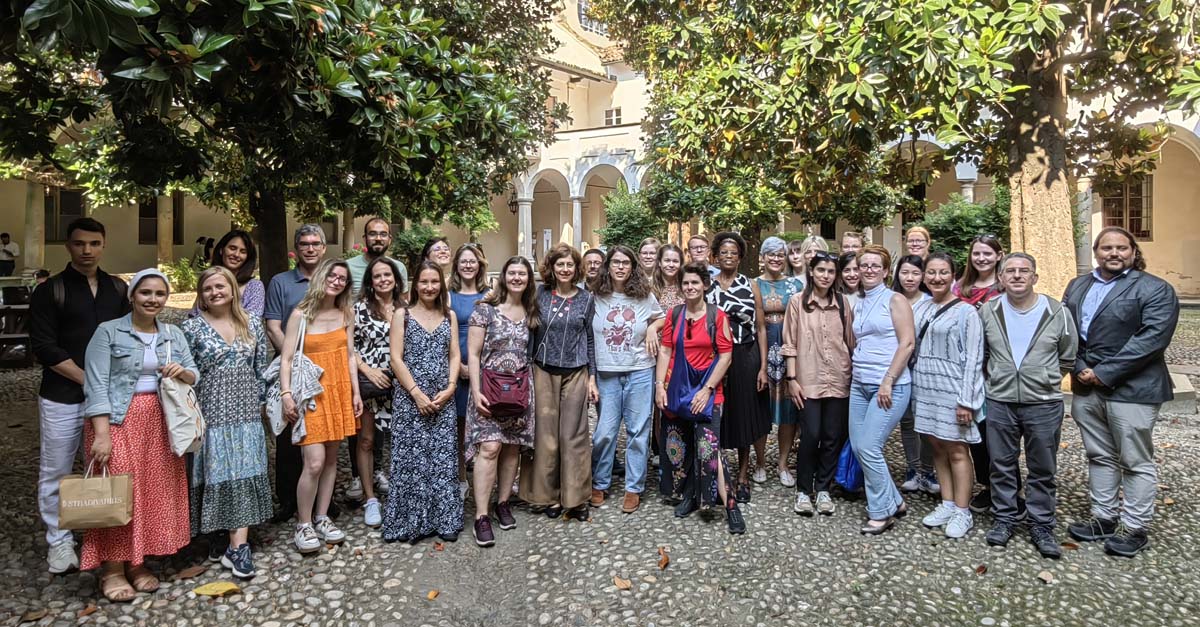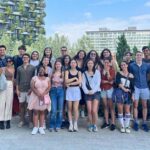(English below) Dal 6 all’8 giugno 2023, il Dipartimento di Studi Umanistici dell’Università di Pavia ha ospitato la seconda edizione degli Joint PhD intensive courses “Machine learning techniques & text processing tools applied to the study of linguistic diversity & cultural perceptions” organizzato dai Proff. Elisabetta Jezek (Università di Pavia), Kristiina Taivalkoski-Shilov (Università di Turku) e Freiderikos Valetopoulos (Università di Poitiers), che fanno parte del Work Package 5 (WP5) dell’Alleanza EC2U (European Campus for City-Universities).
Gli obiettivi dell’Alleanza EC2U sono ispirati ai Sustainable Development Goals (SDGs) delle Nazioni Unite e l’obiettivo che coinvolge più direttamente il WP5 è l’SDG 4 “Quality Education”. Per questo motivo, tra le varie attività di ricerca e insegnamento, ci sono anche training e corsi intensivi pensati per offrire nuovi spunti ai dottorandi dell’Alleanza.
Il PhD Training Course si è focalizzato sulle attuali tecniche di machine learning e sugli strumenti di natural language processing (NLP) che possono essere applicati in campo umanistico. In quest’ottica, sono stati selezionati 40 dottorandi provenienti dai 7 Atenei dell’Alleanza con interessi di ricerca molto diversi tra loro – dalla linguistica computazionale all’insegnamento delle lingue, dall’antropologia alla filologia digitale – per favorire il più possibile un’atmosfera di scambio e confronto interdisciplinare.
La responsabile scientifica del WP5 presso l’Università di Pavia, la Prof.ssa Elisabetta Jezek, insieme alla collega Prof.ssa Ilaria Fiorentini, hanno inaugurato l’evento con due presentazioni sulle metodologie e gli strumenti per lo studio del bias nei testi online, intesi come forme di pregiudizio che spesso passano inosservate perché non comunicate esplicitamente ma per mezzo di strategie linguistiche indirette.
Nel pomeriggio del primo giorno, il Dott. Madalin Marian Deliu ha portato le riflessioni del Prof. Raúl Sánchez Prieto dell’Università di Salamanca sulla ricerca delle language ideologies effettuata con l’ausilio di ChatGPT e condotto un’attività hands-on per permettere ai partecipanti di familiarizzare con lo strumento che sta facendo parlare molto di sé e di cui è importante che la comunità accademica comprenda i limiti e le potenzialità.
La giornata si è conclusa con una passeggiata per il centro di Pavia alla scoperta del suo passato e dei segreti dei suoi monumenti storici, sotto la guida esperta di Ivan, una delle guide di The History Walks.
La seconda giornata di corsi intensivi si è aperta con una panoramica sul mondo delle scienze della traduzione e della loro tecnologizzazione, offerta dalla Prof.ssa Kristiina Taivalkoski-Shilov dell’Università di Turku, a cui è seguito un workshop sull’utilizzo di metodi computazionali per classificare diverse traduzioni a seconda della loro lingua d’origine – attività organizzata da Laura Ivaska, sempre dell’Università di Turku.
Al pomeriggio si è svolta la seconda e ultima attività culturale, ovvero una visita guidata della spettacolare Certosa di Pavia. Il gruppo internazionale è rimasto affascinato dalla bellezza del nostro patrimonio storico-artistico (complice la bellissima giornata di sole) e ha potuto nuovamente godere della presenza di una guida anglofona – Micheal – sempre dal team delle The History Walks.
Infine, l’ultimo giorno di corsi intensivi è iniziato con una presentazione della Prof.ssa Claudia Savina Bianchini dell’Università di Poitiers sull’uso del Motion Capture per la trascrizione di corpora multimodali della lingua dei segni; è proseguito con la presentazione del Prof. Freiderikos Valetopoulos dell’Università di Poitiers sull’annotazione di corpora della lingua parlata e si è concluso con una sessione dedicata ai dottorandi durante la quale i dottorandi coinvolti nel training sono stati divisi in gruppi a seconda dell’area di interesse e affiancati ad uno dei relatori, di modo da poter esporre i propri progetti di ricerca e ricevere un feedback sia dai relatori stessi che dagli altri dottorandi, nell’ottica di favorire future collaborazioni internazionali.
Dopo la cerimonia di consegna degli attestati di partecipazione e i saluti istituzionali della Prorettrice all’Internazionalizzazione Prof.ssa Antonella Forlino, i partecipanti si sono salutati nella magnifica cornice del Cortile delle Magnolie.
Iniziative come il PhD Training, sono un ottimo esempio di come traghettare le Università verso un futuro europeo, fatto di mobilità, scambio, comunicazione, tecnologia e contaminazione tra diversi ambiti. I dottorandi che hanno partecipato all’evento, così come i membri dello staff e i relatori, si sono arricchiti immensamente in soli tre giorni, diventando ambasciatori della nuova idea di Università promossa dall’Alleanza EC2U.
***
EC2U PhD Training Intensive Course – Experience at the University of Pavia
From 6 to 8 June 2023, the Department of Humanities of the University of Pavia hosted the second edition of the Joint PhD intensive courses “Machine learning techniques & text processing tools applied to the study of linguistic diversity & cultural perceptions” organized by Professors Elisabetta Jezek (University of Pavia), Kristiina Taivalkoski-Shilov (University of Turku) and Freiderikos Valetopoulos (University of Poitiers), which are part of Work Package 5 (WP5) of the EC2U Alliance (European Campus for City-Universities).
The objectives of the EC2U Alliance are inspired by the Sustainable Development Goals (SDGs) of the United Nations and the goal that most directly involves WP5 is SDG 4 “Quality Education”. For this reason, among the various research and teaching activities, there are also intensive training and courses designed to offer new ideas to the Alliance’s PhD students.
The PhD Training Course focused on current machine learning techniques and natural language processing (NLP) tools that can be applied in the humanities. With this in mind, 40 PhD students from the 7 universities of the Alliancewith very different research interests – from computational linguistics to language teaching, from anthropology to digitalphilology – were selected to foster as much as possible an atmosphere of interdisciplinary exchange and comparison.
The scientific director of WP5 at the University of Pavia, Prof. Elisabetta Jezek, together with her colleague Prof. Ilaria Fiorentini, inaugurated the event with two presentations on methodologies and tools for the study of bias in online texts,understood as forms of prejudice that often go unnoticed because they are not communicated explicitly but by means ofindirect linguistic strategies. In the afternoon of the first day, Dr. Madalin Marian Deliu brought the reflections of Prof. Raúl Sánchez Prieto of the University of Salamanca on the research of language ideologies carried out with the help of ChatGPT and conducted a hands-on activity to allow participants to familiarize themselves with the tool that is making a lot of talk aboutitself and of which it is important that the academic community understands the limits and potential. The day ended with awalk through the center of Pavia to discover its past and the secrets of its historical monuments, under the expertguidance of Ivan, one of the guides of The History Walks.
The second day of intensive courses opened with an overview of the world of translation sciences and their technologization, offered by Prof. Kristiina Taivalkoski-Shilov of the University of Turku, followed by a workshop on the use of computational methods to classify different translations according to their language of origin – activity organized by Laura Ivaska, also from the University of Turku. In the afternoon the second and last cultural activity took place, a guided tour of the spectacular Certosa di Pavia. The international group was fascinated by the beauty of our historical and artistic heritage (thanks to the beautiful sunny day) and was able to enjoy again the presence of an English-speaking guide – Michael – always from the team of The History Walks.
Finally, the last day of intensive courses began with a presentation by Prof. Claudia Savina Bianchini of the University of Poitiers on the use of Motion Capture for the transcription of multimodal corpora of sign language; continued with the presentation of Prof. Freiderikos Valetopoulos of the University of Poitiers on the corpora annotation of the spoken language and ended with a session dedicated to PhD students during which the PhD students involved in the training were divided into groups according to the area of interest and flanked by one of the speakers, so as to be able to present their research projects and receive feedback both from the speakers themselves and from the other PhD students, with a view to encouraging future international collaborations. After the ceremony of delivery of the certificates of participation and the institutional greetings of the Prorector for Internationalization Prof. Antonella Forlino, the participants greeted each other in the magnificent setting of the Cortile delle Magnolie.
Initiatives such as PhD Training are an excellent example of how to carry universities towards a European future, made ofmobility, exchange, communication, technology, and contamination between different areas. The PhD students who attendedthe event, as well as staff members and speakers, were enriched immensely in just three days, becoming ambassadors of the new idea of University promoted by the EC2U Alliance.




